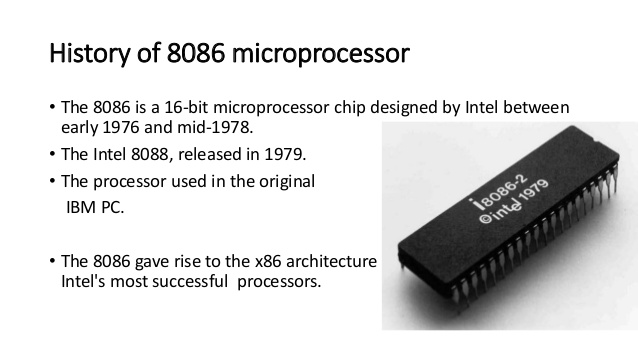A MEMORY PROMPTED BY THE ATTACHED LINK. COMPUTERPHOBES SHOULD NOT READ…
An anecdote from computer history that will date me and some of the long running computer inefficiencies we still deal with today.
In the mid-1980s I worked for one of the ‘Big 8’ computer companies struggling to compete in the microprocessor revolution that was making business so tough for pushers of heavy hardware called mainframe this and minicomputer that. My division was a startup established to battle the IBM PC in the new world of PC networks that were spreading like wildfire in business environments once firmly controlled by a dictatorial IT department. No longer. Every middle manager with an office equipment budget had bought as many PCs as he could, and now the professionals were trying to regain control of data from standalones to corporate systems. Old-line computer ‘manufacturers’ (as they quaintly continued to call themselves) were now desperately in the business of “networking PCs,” whatever that meant. They were selling PC clones, some of them actionably in violation of IBM patents, and scotchtaping them together with coaxial cables, modems, and whatever network interface software they could cobble together or resell from ‘OEMs.’
Everybody in the old-line computer world was losing to IBM, losing hard. They wanted to sell hardware and the emerging application environment had outrun them by the time they got at all serious about software as something more than the spark plug flashes that made their boxes light up. Where we were in competing within the Fortune 500 user market. We had an OEM workstation with proprietary application and networking software and it was not a PC, did not run DOS, and cost more than a PC clone setup that nominally did the same thing.
Nominally. In actual fact, in truth, our product was a state of the art small computer network system far beyond the scope of what anyone starting with a DOS-based system could compete with operationally. It was truly multi-tasking user interfaces, transparent from station to station, from station to server, and from server to station, in all applications, which included the staple office suite of functions of the day, including advanced word/document processing, spreadsheet, records processing, calendar, email, relational database, strong security, and simply managed network administration functionality, and gateways for industry standard communications upward from local to IBM-based corporate networks. And we couldn’t sell it.
Time and again we made buyer short lists, often one of the last two vendors being considered. Then they went with IBM PCs. IBM owned the mainframe and fleets of guys in blue suits who would arrive to browbeat anyone from local business managers to corporate VPs and even CEOs. Let the microprocessor revolution become a revolt against IBM control and IBM WILL see to it that the company board replaces everyone responsible. Absolute power. Not a myth. In those days, of the Fortune 500, 493 had IBM mainframes based on computer architectures still rooted in the 1960s and very incompatible with the new technologies emerging. The seven companies who did not have IBM mainframes were computer companies.
As the sales losses piled up, our little division responded with an “Executive Briefing System” program to communicate the clear technological superiority we were offering. The program consisted of one guy, an actual computer genius who was one of the ones who built circuit boards in his garage as Gates and his ilk were doing the same. He never got capitalization for his own designs (a large family started early and a penchant for speaking acerbically to ignorants…), but he knew, really knew, how all this stuff worked and didn’t. Why everybody in our divisional management was glad when he stopped asking impossible questions in planning meetings and began living on the road, traveling from city to city trying to win a skirmish or two with a Moby Dick named IBM. Once he got off a plane in St. Louis so jet-lagged he couldn’t figure out where he was for ten minutes that seemed like hours.
What he knew, no one wanted to hear. Just one scene in every one of his Executive Briefings. He waits for the assembled computer experts involved in the purchase decision to tell him with cold confidence that they had no need of our product because they were “networking PCs.” Then he invites them to join him to watch a brand new, just out of the box, ‘network ready PC’ boot up from the first touch of the on button.
It’s a familiar process, known even to many computer users much younger than his audience. Dark screen, green code appearing, marching, ticking, ticking, new subroutines invoked, all very quick, until the CRT announces that the IBM PC has its full complement of 768KB of memory loaded, checked, and available. 768KB. That’s the tiny hardware kernel DOS was made for. All it would ever have. DOS has no designed-in communications capabilities. It is a standalone calculator, not that different from a cash register (poignant in our case because our company was NCR). All the communications, all the networking tag was going to tie every user into a vast, transparent, perfectly integrated corporate computer system was being built OUTSIDE the archaic at introduction cold unbeating heart of DOS. Like trying to turn the old Dixie cup kidphone system into a nationwide telecommunications system by attaching electrical cables to it. The first 768KB of memory had been grown in multiples of eight, 256KB, 512KB, 768KB… where it maxed out. Everything from then on would have to be done from outside.
You can’t turn a Model T into a Bullitt Mustang by dropping a giant motor into it. But by golly, IBM tried. Hundreds of entrepreneurs and innovators tried. What they got was Model Ts wired together in a fatally unfreeable chain gang. The awful, antique, miserable little kernel of DOS is still deep inside every Windows machine today, along with all the compromises, inefficiencies, and unacceptable operating environment attributes we have been forced to accept. Windows is layer upon layer of microcomputer history, all there to bury and conceal the inherently screwed up DNA of its fossilized ancestor species.
I remembered all of this when I read Anton Kapela’s brief post from earlier today. He mentioned the number ‘86’. That rang the bell. The first microprocessor in the first IBM PC was the Intel 8086, soon replaced by the 8088 and a slew of sons. But it’s still there inside (Intel Inside!!!) the umpty-gig wonder machine on your desk, even if it’s an Apple. Apple showed the world how to get past the IBM PC, but like the tarbaby of legend, contact can’t ever be wholly broken. Apple still has to live in a DOS-diseased species of computer environment. Compromises, workarounds, times of going backward to stay in the game, all of that.
The funny and perhaps more ominous part of the story is that the IBM PC did what no other computer manufacturer or combination or cartel of them could accomplish: Break the IBM monopoly. Which fell the way of all empires and dynasties, from within. Yes, IBM won all those purchase competitions and sold millions of PC networks, but they didn’t work. IBM never got the necessary hegemony in its empire of big company colonies. The centralized IT powers lost control of the data, its verification and security most of all, because no one can see the ticking time bomb in the Accounting Department spreadsheet that uses numbers entered not by a data entry clerk but by an MBA with a degree in Personnel Management.
The revolt succeeded, pushed by a million Spartacuses, not by Apple or Cisco. Their own empires will also fall the same way, from within. IBM still exists today, it’s still big today, but it will never again have the earthshaking roar of Godzilla rising from the angry sea.
And we will probably never be entirely done with Godzilla’s seed, the eggs that are gestating on desktops around the globe, promising to make future life not unlivable, but nevertheless will populate with Blue Screens of Death, compatibility issues without end, and a jungle of prehistoric file structures and conventions that haven’t made any sense since before they took over your world and mine, but are to a certainty as much a fact of life as the air we breathe.




